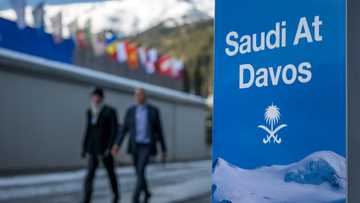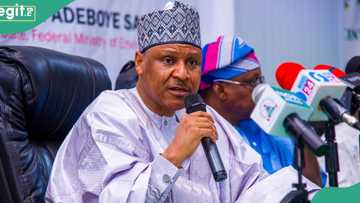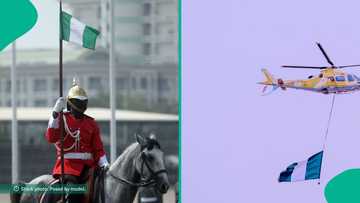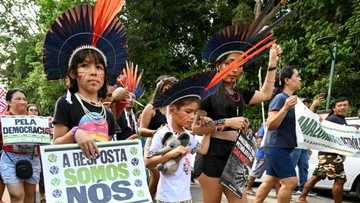11 national symbols of Nigeria and their meanings explained
A national symbol is an object, sign, or emblem belonging to a nation often characterized by federal integration and a state of colonial independence. Such a symbol is meant to unite the country's populace by creating iconic, verbal, or visual representations of the people's history, goals, and values. Additionally, the symbols are often used as part of national celebrations to showcase nationalism and patriotism. What are the national symbols of Nigeria today?
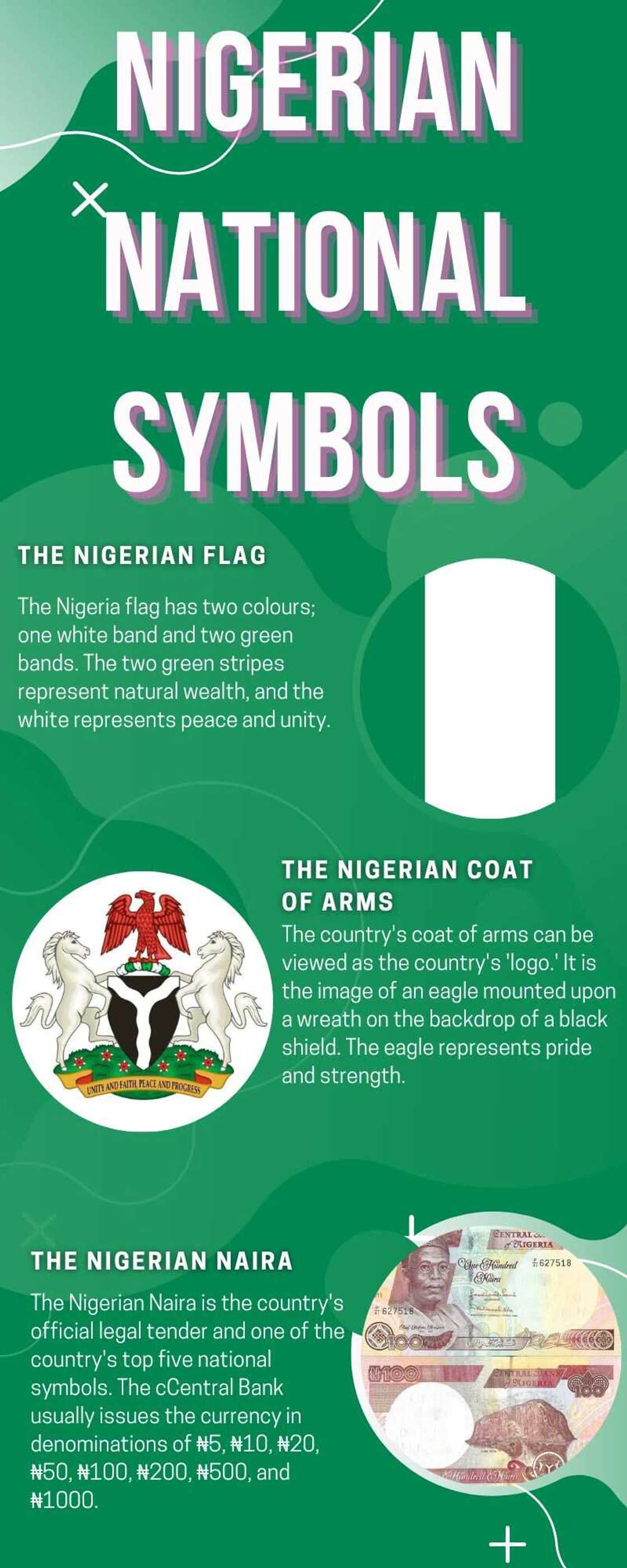
Source: UGC
The Nigerian national symbols hold deep cultural, historical, and social significance for Nigerians, representing their shared identity, aspirations, and pride in their diverse heritage.
What do the national symbols of Nigeria stand for?
Here is a look at the national symbols of Nigeria and their underlying meanings.
1. The National Anthem
The country's national anthem takes into cognizance the account of the country's historical past as well as its aims and aspirations for the coming generation. In addition, the anthem serves as a clarion call for all Nigerians to serve their motherland with zeal and faith.
The anthem, known as Arise O' Compatriot, was adopted in 1978 and replaced the former National Anthem, Nigeria, We Hail Thee. The lyrics were coined from the five best entries in a countrywide contest held to determine the new anthem. The words were put to music by Benedict Odiase, the then-director of the country's Police Band.
2. The Nigerian flag
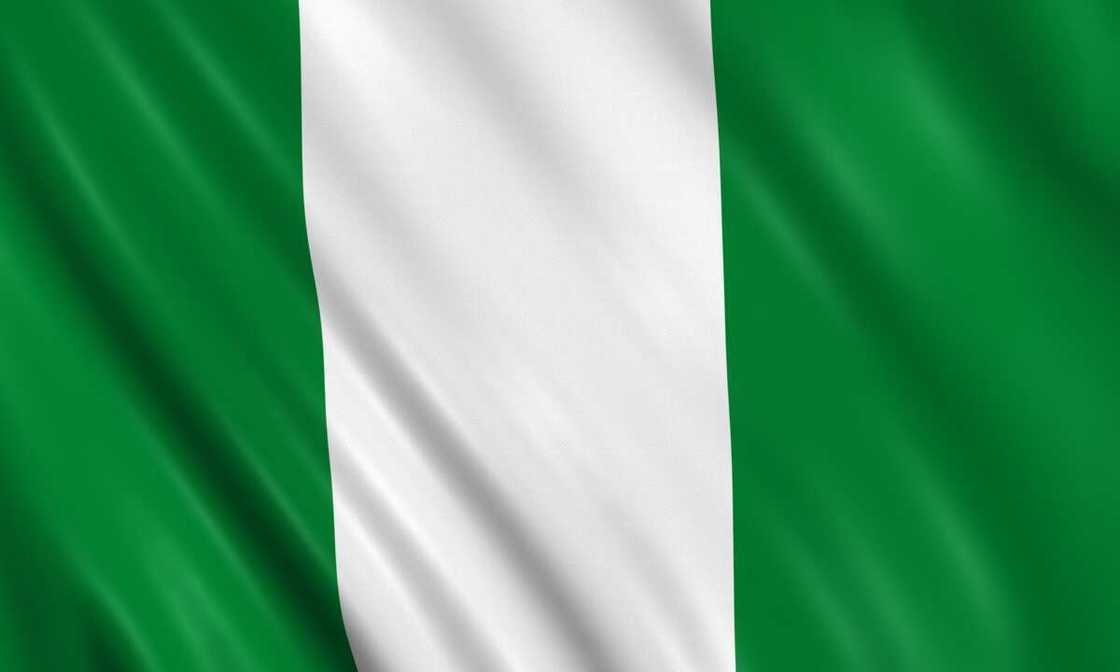
Source: UGC
The Nigeria flag has two colours; one white band and two green bands. Before 1960, Nigeria used the British flag since it was a British colony. After it attained independence, the country adopted the current flag. The white colour in Nigeria's flag stands for peace and unity, while the two green stripes represent natural wealth.
The flag was designed in 1959 by Michael Taiwo Akinkunmi, a student at Norwood Technical College, London. Today, the country's flag is usually hoisted in front of public buildings, government houses, the National Assembly, embassies, and buildings housing major international bodies.
The flag is flown at half-mast whenever the country is experiencing serious political upheaval or mourning a renowned figure. It is also flown at half-mast to express solidarity with a friendly nation that has been befallen by tragedy.
3. The coat of arms of Nigeria
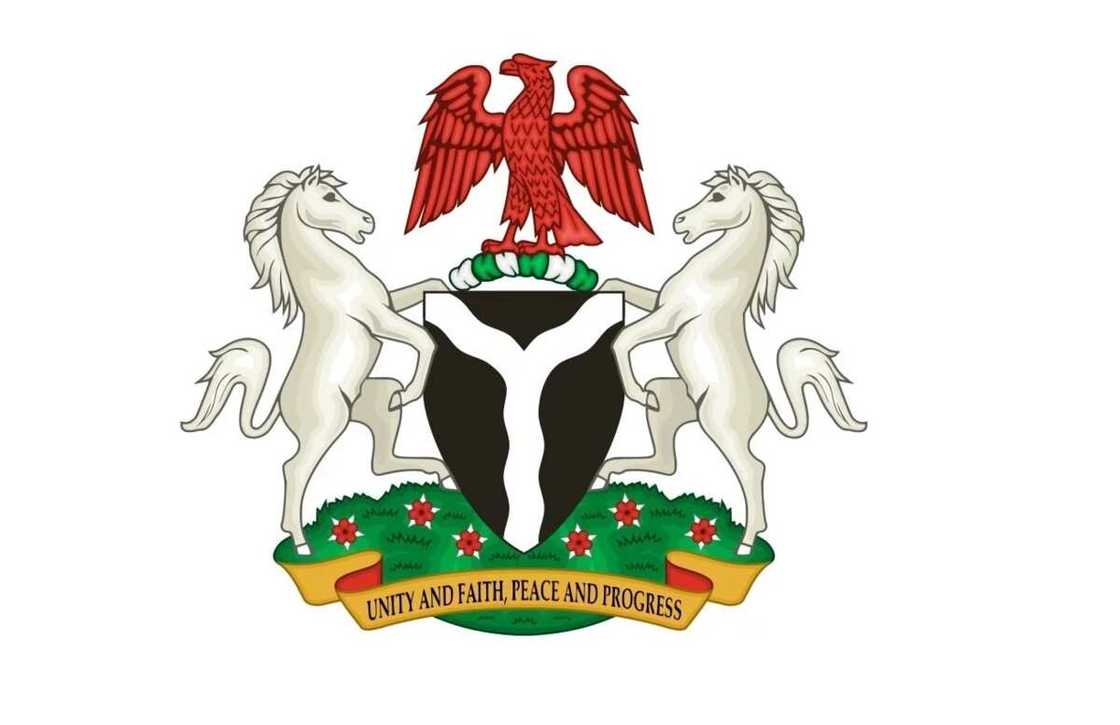
Source: Instagram
The country's coat of arms can be viewed as the country's "logo." It is the image of an eagle mounted upon a wreath on the backdrop of a black shield. Here are the meanings of Nigerian coats of arms.
- The eagle represents pride and strength.
- The fertility of Nigeria's soil is represented by the shield's colour, which also signifies the country's vast mineral resources.
- The wavy band on the shield represents Nigeria's largest rivers, River Benue and River Niger.
- The two horses in the coat of arms represent strength and dignity.
- The shield's base depicts the costus spectabilis, one of the most abundant wildflowers in Africa.
- At the bottom of the coat of arms are the words' unity and faith, peace and progress.
4. The Nigerian pledge
Nigeria's national pledge is an oath of allegiance of support to the country. The pledge is typically recited after the anthem and is among the top 5 national symbols of Nigeria. Professor Felicia Adebola drafted the words in the pledge in September 1976. Shortly afterwards, then General Olusegun Obasanjo decreed that all school-going children were to recite the pledge on a daily basis
Here are the words in the pledge.
I pledge to Nigeria, my country, to be faithful, loyal, and honest. To serve Nigeria with all my strength, to defend her unity and uphold her honour and glory. So, help me, God.
5. The Nigerian Naira
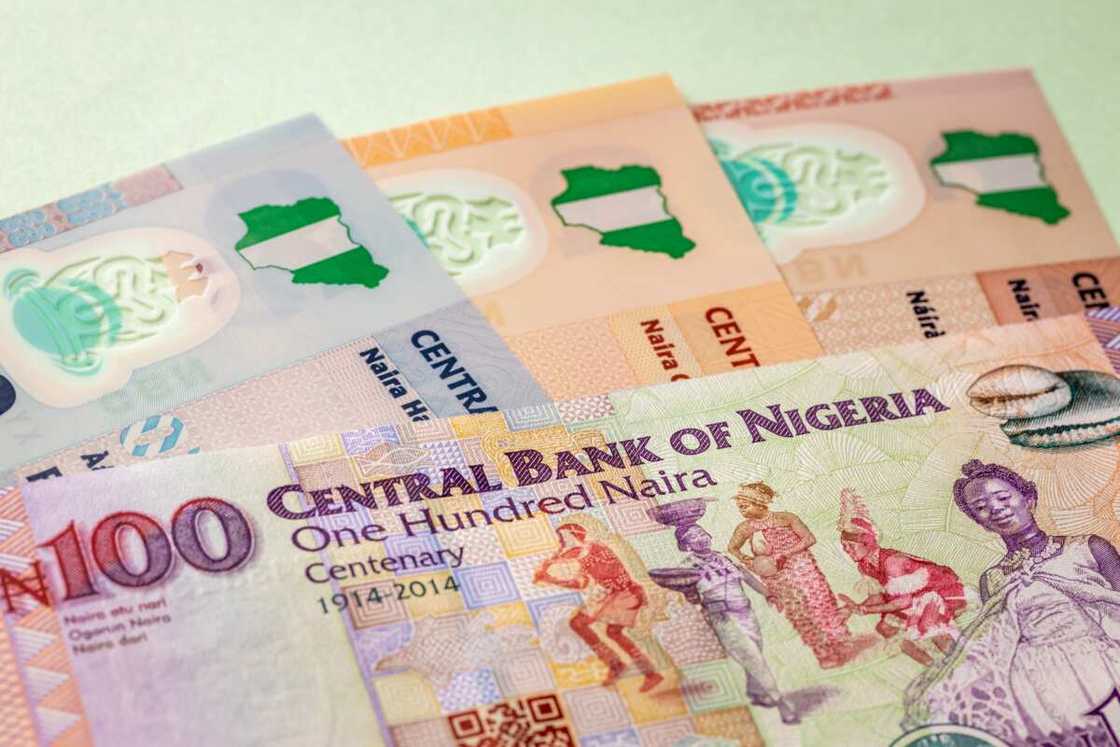
Source: Getty Images
The Nigerian Naira is the country's official legal tender and one of the country's top five national symbols. The Central Bank usually issues the currency in denominations of ₦5, ₦10, ₦20, ₦50, ₦100, ₦200, ₦500, and ₦1000. The notes have pictures of the country's heroes, with ₦50 being the most common denomination.

Read also
Insecurity: Concerns as Defence HQ uncovers fresh activities of foreign terrorists, details emerge
Besides images of well-known heroes, some of the notes also have images depicting the numerous Nigerian tribes and cultures.
6. The armed forces
The country's armed forces consist of the air force, the Navy, and the Army. These forces are tasked with defending the country's territorial integrity, making them part of the unifying national symbols in Nigeria. Besides defending Nigeria, the armed forces also work with other nations, particularly on peacekeeping missions.
7. The national flower
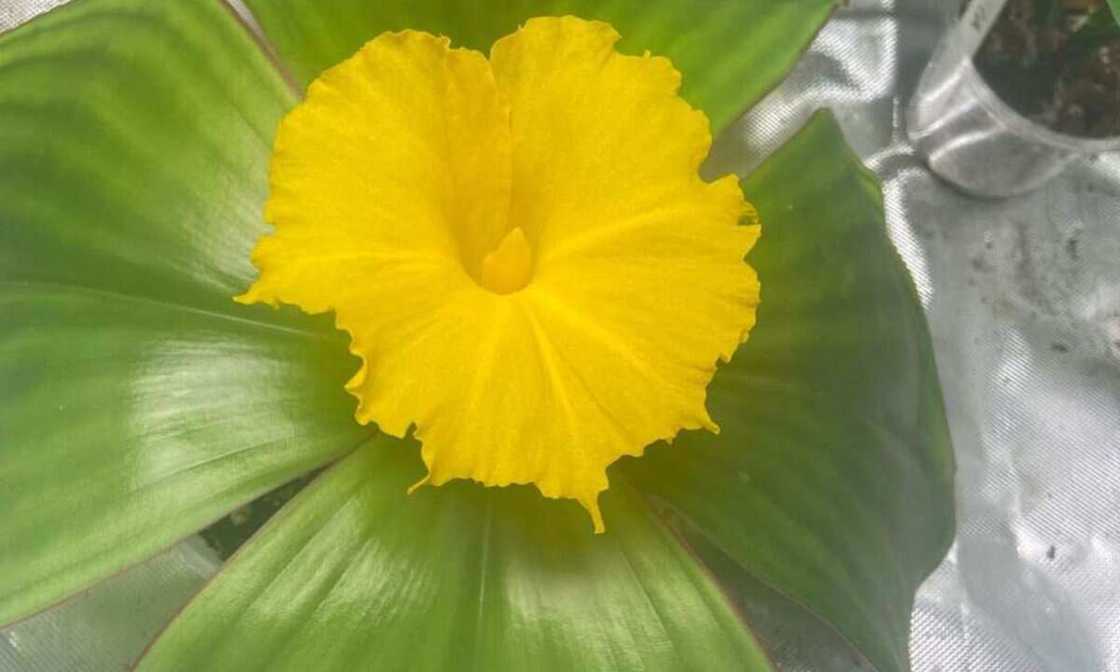
Source: Instagram
Unbeknownst to many, Nigeria has a national flower as one of its symbols. The flower in question is the Costus spectabilis, one of the most common wildflowers in the country. There are more than 100 varieties of the flower, all with slightly varying features.
Interestingly, the Nigerian coat of arms has a red variety of flowers despite the official one being the yellow variety.
8. The Seal of the Nigerian President
This is the official symbol of the country's President. It was first used in 1979 by then-President Shehu Shagari. The seal was then abandoned by the successive military regimes that ruled from 1983 to 1999. It was then reintroduced in the wake of the fourth republic in 1999. It has remained in use since then.
The seal has the image of the country's coat of arms surrounded by the words "Seal of the President of the Federal Republic of Nigeria."
9. The National Arts Theatre
The theatre is the primary venue for the performing arts in the country. The building is located in Iganmu, Surulere, Lagos. The theatre was built in 1976 in preparation for the Festival of Arts and Culture (FESTAC) 1977.
The theatre's exterior is shaped like a military hat. The inside has a 5,000-seater hall with a collapsible stage and two capacity cinema halls, all equipped with facilities for the simultaneous translation of up to 8 languages.
10. The national animal of Nigeria
The eagle is Nigeria's official animal. There isn't a specific reason the bird was chosen as one of the Nigerian symbols, given it's not even found abundantly in the country. Still, it is used to depict strength and vision. Additionally, the eagle appears in two other symbols, the country's coat of arms and the President's seal.
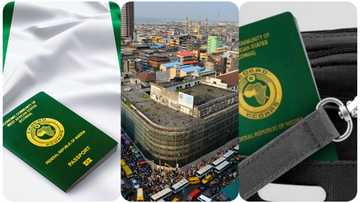
Read also
New update: From Rwanda to Djibouti, 5 visa free countries Nigerians can visit without stress in 2023
11. The Nigerian President
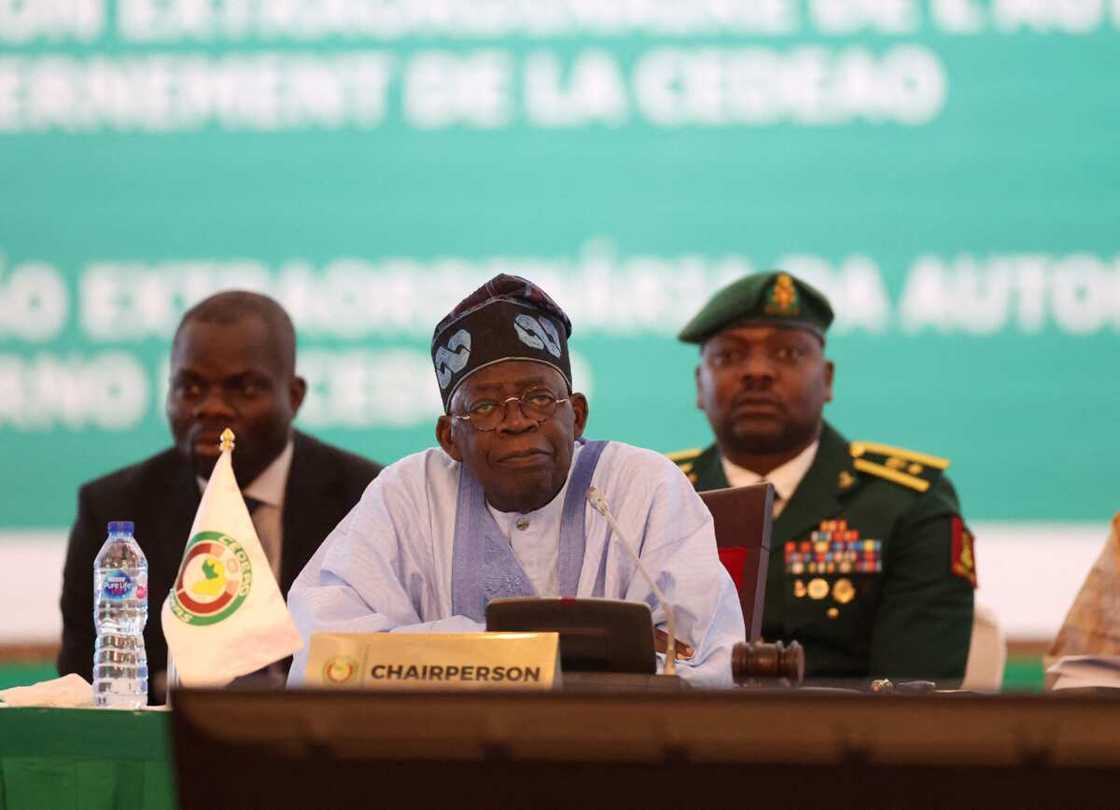
Source: Getty Images
The country's sitting president is one of the most important national symbols. The President is usually chosen by popular vote during the presidential elections every five years. A picture of the President can be found in most public offices. The current President is Bola Ahmed Tinubu.
What is the most important symbol in Nigeria?
While it is hard to gauge the different symbols by importance, the country's flag is arguably the most important one. Its widespread use in and out of the country underlines its essence.
How many national symbols does Nigeria have?
The country currently has 11 national symbols. They are:
- The National Anthem
- The Nigerian flag
- The coat of arms of Nigeria
- The Nigerian pledge
- The Nigerian Naira
- The armed forces
- The national flower
- The Seal of the Nigerian President
- The National Arts Theatre
- The national animal of Nigeria
- The Nigerian President
What does the black shield in the coat of arms represent?
The black shield represents the rich and fertile soil of Nigeria. Agriculture has been a fundamental part of the country's economy and sustenance for centuries.
Like numerous other countries across the world, Nigeria has various symbols that signify national unity. These national symbols are meant to unite Nigerians behind a common purpose and are used in different situations.
Legit.ng recently explored the main economic problems plaguing Nigeria. Like other middle-income countries with emerging markets, the country has witnessed gradual expansion in communication, technology, finance, manufacturing, and service sectors.
However, problems such as poor health facilities, high crime levels, unemployment, and corruption continue to be pressing issues in the country's economy.
Source: Legit.ng

Jackline Wangare (Lifestyle writer) Jackline Simwa is a content writer at Legit.ng, where she has worked since mid-2021. She tackles diverse topics, including finance, entertainment, sports, and lifestyle. Previously, she worked at The Campanile by Kenyatta University. She has more than five years in writing. Jackline graduated with a Bachelor’s degree in Economics (2019) and a Diploma in Marketing (2015) from Kenyatta University. In 2023, Jackline finished the AFP course on Digital Investigation Techniques and Google News Initiative course in 2024. Email: simwajackie2022@gmail.com.

Adrianna Simwa (Lifestyle writer) Adrianna Simwa is a content writer at Legit.ng where she has worked since mid-2022. She has written for many periodicals on a variety of subjects, including news, celebrities, and lifestyle, for more than three years. She has worked for The Hoth, The Standard Group and Triple P Media. Adrianna graduated from Nairobi University with a Bachelor of Fine Arts (BFA) in 2020. In 2023, Simwa finished the AFP course on Digital Investigation Techniques. You can reach her through her email: adriannasimwa@gmail.com


